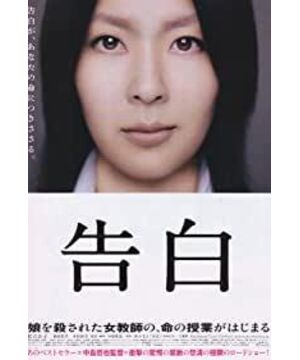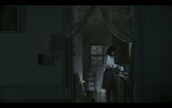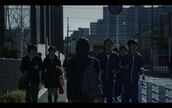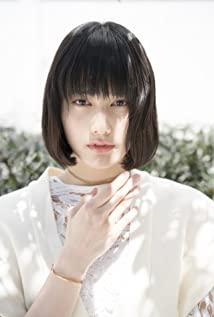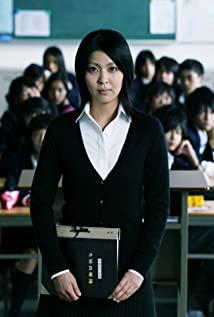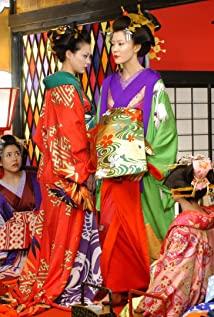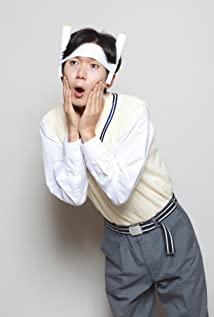Relying on the halo of being nominated for the best foreign language film at the Oscars, "Confession" has become one of the few Japanese live-action films that has been "out of the circle" after the new millennium. Ten years have passed, and time has cast its magic, making "knowledge archaeology" full of surprises and sighs. The original film "Confession" is based on the debut novel by the inference writer Minato Kanae. Over the past ten years, her novel has become the target of adaptations pursued by the Japanese film and television industry. In the past ten years, director Tetsuya Nakajima has been unhurried, and the two feature films "Longing" and "Come" have finally failed to surpass the peak of "Confession."
"Confession" producer Genki Kawamura sang all the way, and later created "Your Name." Myth, which successfully promoted Xin Haicheng to the public eye. And those young faces in "Confession" were favored by the spotlight ten years later, such as Ai Hashimoto, Rena Noen, Ayaka Miyoshi... Yes, before forming the national-level CP of "Ama" and "Confession". This is the place where Hashimoto and Nao meet for the first time. Ten years have passed, and time has brought the crown. "Confession" is still a brilliant work of darkness.
Here, form and content constitute an aesthetic tension. The clear picture and the darkness of human nature collide fiercely. Behind the romanticized MV-style upgraded lens is the wanton spread of the shadow of death. The circumstances have changed, but the sadness remains. This is the most chilling part of "re-reading" "Confession." It all starts with two teenagers colluding to kill a girl. At the beginning of the movie, Moriguchi, a female teacher dressed in black, appeared as quiet as a nun. But we soon learn that this is an avenger who is going to fight back against her students for the sake of her daughter.
"Confession" is like a miniature universe, covering a series of painful issues such as juvenile delinquency, school bullying, family education, etc. These issues are shaped into the flesh of the plot, and what we jointly explore is the darkness of human nature. noodle. As an Avenger, Moriguchi has no Hamlet-style delays. She accepts the reality that the dead cannot be resurrected, but she cannot face the tolerance of "Juvenile Law".
In the novel, Moriguchi asks: "When I was a teenager, a teenager under the age of 16 killed someone, but as long as the family court agrees, there is no need to enter the juvenile hospital." This is saying that a child is innocent. What is the myth of the era? Due to the loopholes in the "Juvenile Law" in the 1990s, there were frequent vicious crimes committed by 14- and 15-year-old children.
Shuya and Naoki, who killed Moriguchi's daughter, of course, could not escape punishment, but they could be exempted from criminal punishment. This is what Moriguchi could not agree with. How can the detention and rearing of social institutions wash away the darkness of human nature? "Juvenile Law" holds optimism about human nature and believes that minors lack the ability to distinguish right from wrong and that human nature that has gone astray can be corrected. This is also the general position of the civil law system. On the contrary, the common law system believes that the darkness of human nature cannot be cleaned up, so it keeps lowering the age of criminal responsibility.
If only Moriguchi's violent pursuit attitude was shown, or if only a simple accusation was made against the "bad boy", "Confession" would have become a vain exploitative film. Tetsuya Nakajima followed the novel's approach and used a multi-perspective "confession style" to structure the entire film. This is not Rashomon who pieced together the whole picture of the case, but a multi-voice in order to enrich the presentation of human nature—while showing the "bad child," it is also necessary to investigate how the child became
Why was Shuya killed? for a mother's love. Xiu Zai's mother thinks that Xiu Zai's birth has dragged down her career dreams and finally chooses to give up marriage and give up Xiu Zai. And Xiu Zai's murder plan was just to exchange for a chance to reunite with his mother. Why was Naoki killed? Under the excessive protection of her mother, Naoki turned into a tired flower in the greenhouse, inferior and cowardly. When top student Shuya invited him to join the murder plan, Naoki gained the satisfaction of being needed and recognized. But he soon realized that he was just a simple tool in Xiu Zai's eyes. In the end, he easily crossed the line of human nature and drowned the girl, who was corona and still had a heartbeat.
The problem of "bad kids" often reflects the problems of adults and people. The bad boy in "Lord of the Flies" reflects the collapse of humanism. The bad boy in "Looks Beautiful" reflects the harm of collectivism. But is the environment really the whole answer? The complexity emerges Moriguchi's husband, Sakuramiya Masayoshi, known as the "Persuading Fresh Teacher," is like the enthusiastic teachers we are familiar with; "Whether they are students in this school or not, he will persuade them: 'Don't give up on yourself. If you want to get back on your feet, you can do it. "
Sakuranomiya are Shuya and Naoki, who grew up. He has a history similar to theirs: he was the leader of a bad gang in middle school, and he was ordered to drop out of school after hitting the head teacher in the second year of high school. But similar beginnings lead to very different endings. After meeting the souls struggling in poverty and strife, Sakuragiya realized his error, resolved to become a teacher, and tried his hardest to save the "bad children" who had fallen into the lost.
It does not shy away from the concentration of shadows, but also outlines where the shadows come from, and there are even people who can climb out of the shadows. You have witnessed the evil of the "bad kids," and you have also glimpsed their "grievances." All beings are suffering, and no one can stay out of it, but you haven't fallen into the "deep well" that Haruki Murakami called out-you're just a lucky survivor.
Xiu Zai once thought that by removing himself, his mother would be able to pursue her career with all her might. But in the end, it was discovered that after the mother remarried, she easily quit her research job. Xiu Zai who killed people should be punished, but Xiu Zai who was left behind forever, who could salvage him? So Mori used a knife to kill, and Shuya killed the mother he looked up to. Shuya said to Moriguchi, "This is the first step in your rebirth—just kidding." At this time, Moriguchi condensed tears and smiled. She released the darkness and was backlashed by it.
Everything is like the key image that Tetsuya Nakajima gave to the film: a clock that goes backwards is always a delusion. Everything is inevitable and irreversible. Back to the question that should have been answered at the beginning of this article but was skipped: ten years later, why should we (re)watch "Confession"? Because all the problems described in "Confession" are still repeated in the reality outside the camera. Because every one of us has the potential to become a "bad boy". It is also because, by watching "Confession", we can increase some of the "imagination of others' pain," as Lam said.
View more about Confessions reviews


